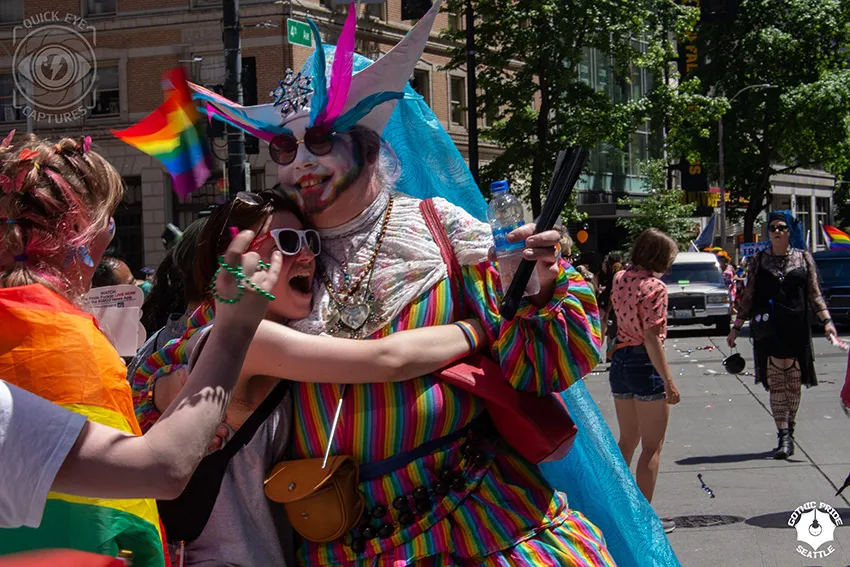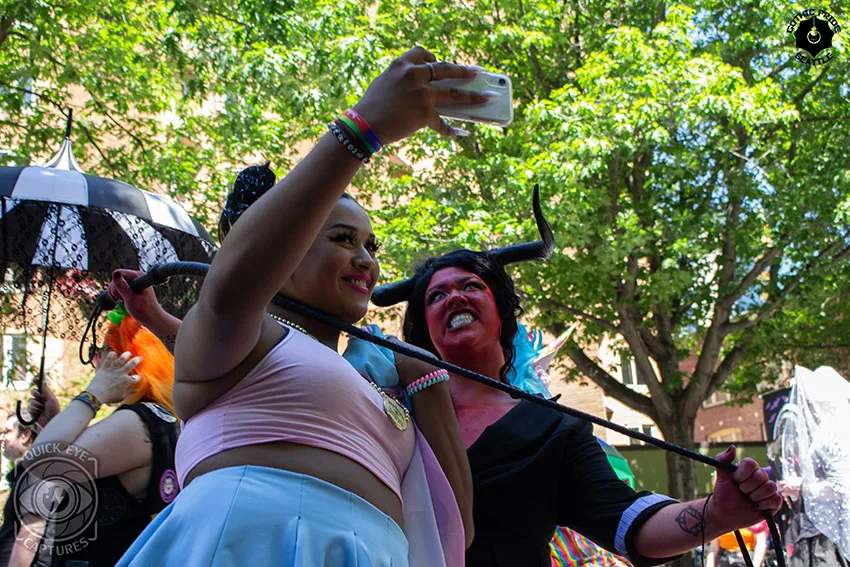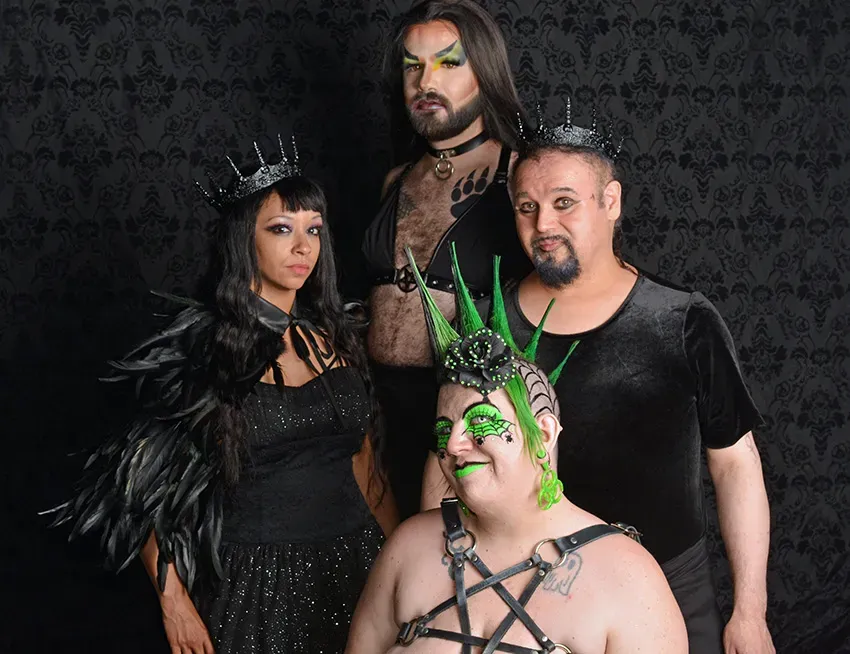As our city's parks, storefronts, and corporate Twitter accounts don all the colors of the rainbow and more in honor of Pride month, Gothic Pride Seattle is keeping it real and sticking to shades of black.
The organization held a pageant last week at Cafe Racer to bestow the title of Mx. Gothic Seattle, and it will likely appear in the Seattle Pride parade along with its traditional black hearse.
Non-goths might assume that the organization is simply an alternative to the flamboyant aesthetic typical to celebrations of queerness, but as board members Daemon Chadeau and Samandra Luvett explained, there's a lot more to both Gothic Pride and the goth subculture in general.

"I like to think of us as a solidarity organization between the goth community and the greater LGBTQIA+ community," Chadeau said over Zoom. "We use advocacy, social and fundraising events, [and] education to help strengthen and empower our diverse community, just to try to see if we can make these lasting and safe connections and alliances with folks throughout the community, as well as the greater Queer community in general."
Chadeau emceed the pageant alongside Monsignor of Monsignor's Confessional. DJ Drew set the mood for the event, and a panel of judges decided the winners based on a series of trials: questions pulled from a hat, with contestants in evening dress; an improvised "dance mysteria" in club dress; and the contestant's overall contributions to the Queer and goth communities.
Luvett, one of two to win the title of Mx. Gothic Seattle, said that being goth often means finding the beauty in life's difficult moments.
"A lot of times, when you struggle and you're at the depths, that's usually when you break through and you find the light," Luvett said. "You know, those are your deepest, darkest, grittiest moments."
Being goth can also mean "finding the beauty in the grotesque, finding that beauty in the morbid, finding beauty in death as part of the cycle of life and that it should be appreciated in that same way as we see life," Chadeau added.
That makes the goth movement sound very solemn, but "we're not all mopy folks," Chadeau said. There's a good reason the comedy film The Addams Family and its sequel are often cited as a "first flag."
Chadeau credited the goth community for helping him embrace his own queerness. "It comes down to one word: acceptance," he said.

More than a phase
By most accounts the punk rock scene had burned itself out as a singular movement by the late 1970s. But it never truly died; it lives on today in its many successors, which, like fragments of a god, crawled from its ashen corpse and became scenes in their own rights.
New wave, pop punk, hardcore punk, and street punk are just a few, but the goth subculture owes its origins partly to post-punk, whose big names include Siouxsie and the Banshees, Bauhaus, The Cure, and Joy Division.
These bands should be familiar to most Seattleites. The Cure had a show in Climate Pledge Arena just last week, and punk-adjacent indie bands make regular visits to venues like the Southgate Roller Rink.
But what does all this have to do with Gothic Pride? Music has historically been the unifying element of many so-called "alternative" subcultures, and these are often more accepting of marginalized groups like Queer people.
"In the history of the goth community, we have found our spaces among Queer spaces," Chadeau said. "A lot of the early goth clubs back in the day, most of them were held in Gay bars."
And whereas many music-oriented subcultures of the same era petered out, goth has continued long enough that there are "second-generation" goths, the children of early adopters.
So in a very literal way, there's a lineage to this ethos of acceptance, and in Seattle, the bloodline is strong.
"I think a lot of counterculture has focused itself on how they are different rather than how they are all are linked, in my opinion," Chadeau said. "And because of that, it seems like there's a lot of fighting between those communities, and a lot of gatekeeping.
"That's why we as an organization try to be as fostering and welcoming as we can."
As part of those efforts, Gothic Pride Seattle organizes monthly goth nights, dances, and swap meets in Tacoma and Seattle. Luvette said that many Seattle goth events are returning to pre-pandemic levels of attendance, and interest is rising in smaller places outside the city, like in Spokane.
Often in conjunction with the Sisters of Perpetual Indulgence, the organization fundraises for its "community crypt fund," which is used to bolster goth-owned businesses that fall on tough times, and pay for resources, such as its open, quarterly consent education workshops with the Consent Academy.
On June 17 from noon to 6 p.m., Gothic Pride will host "Goth Fly a Kite" at Alki Beach, one of its many summer picnics. You can learn more about Gothic Pride Seattle at https://www.gothicprideseattle.org/. Keep up with its future events on Facebook or Instagram @gothicprideseattle. To donate, visit https://www.patreon.com/GothicPrideSeattle/


